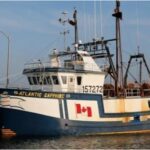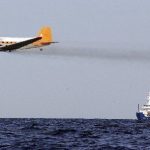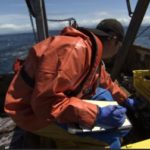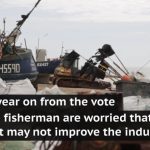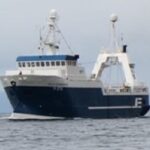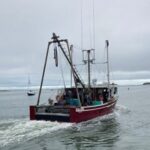Commissioner’s Update – Good News? Cautiously Optimistic
Commissioner’s Update
Good News? Cautiously Optimistic
The Center for Biological Diversity, in their case against the National Marine Fisheries Service (NMFS), has done an about face. In their first filing, they had asked Judge Boasberg to implement new rules to achieve the required risk reduction within 6 months, but their filing last Friday asked the Judge to implement a two-year process to develop and implement those rules. They also asked the Judge to vacate the current Biological Opinion so that it can be rewritten while the new rules are being developed. Why they changed their position is not known, but DMR, NMFS, MLA, MLU and Mass Lobstermen all asked for a similar process that was two years or longer. In any event, this development is good news, but the Judge must agree before this is final. I am cautiously optimistic that he will agree that time is needed, given the complexity and difficulty of what we are facing. We expect a decision on this case in November.
I can tell you we need this time not only to work on rulemaking, but all our other efforts as well. There is no single silver bullet in our efforts to gain some relief from new whale regulations. We are focused on three areas: Federal regulations, federal courts, and Congress, and our efforts must remain focused on all three to protect the interests of the industry in the long run.
Courts: As I laid out in my last update, the State of Maine is fully engaged in two federal lawsuits. The first one (CBD vs Ross (NMFS)) is the one I mentioned above. The second lawsuit is MLA vs NMFS. The MLA suit that Judge Boasberg ruled against has gone to the First Circuit Court of Appeal. More good news here – the court agreed with the State and the other parties that this case should be expedited. This means that after all the briefs are filed, the court could rule in late January or early February. The importance of the MLA case can’t be overstated, as this is where the arbitrary use of the data is being argued, which could modify the risk reduction target, if successful.
Rulemaking: The Federal Rulemaking process has begun. The last decision by Judge Boasberg has sent NMFS scrambling back to the drawing board and has them developing new rules that would achieve a 90% risk reduction. Thanks to Governor Mills’ efforts working with Secretary Raimondo of the U.S. Department of Commerce, DMR was granted access to the Decision Support Tool (DST), the model that is used to assess the effectiveness of a proposed rule(s). Access to this tool was critically important as without it we could not properly react to proposals by NMFS. DMR invited a subset of Zone Council leaders and Take Reduction Team members from Maine to work together to prep for 7 days of TRT meetings in late November and early December. THIS WORK WAS NOT TO DEVELOP A MAINE BASED PROPOSAL OR NEW RULE. This work is to better understand the implications that other proposals will have on the Maine fishery. While options are being discussed, it is only with the intent to be able to speak against ideas that would be detrimental to the industry. As soon as we get past the TRT meetings, DMR will hold zone meetings to show you the results of different draft scenarios and get input directly from the Zones. This work highlights why we need the Judge to rule in favor of a two-year process.
Congressional: The Maine delegation has been incredibly supportive. Some have stated publicly that they are prepared to challenge the Endangered Species Act and the Marine Mammal Protection Act – which realistically are heavy lifts, but which need to be explored. While I am not going to go into details, we need Congress’s attention on this matter. The view from 100,000 feet looks like this: We need changes in law, we need an independent review of the science around right whales, particularly the model, which is based on assumptions that are not based in reality, and we need additional cost recovery for expenses caused by this federal government overreach. We have retained a firm in DC who has experience in fisheries issues who will help us navigate through this process and develop a solid plan that will have broad support. Again, another reason why more time is important.
We need time to navigate all of these areas so you have stability and certainty for your future. This is why each one of these focus areas is so important. I appreciate the support of the Maine Lobstermen’s Association as well as the Lobster Union in all the efforts listed above. It is imperative that this industry is united and works together and I feel like that is now starting to happen.
I can attest that the lawyers from all the groups are working hard for a common cause. Let’s hope for good decisions by the judges in the coming months.
All the best,
Pat


































